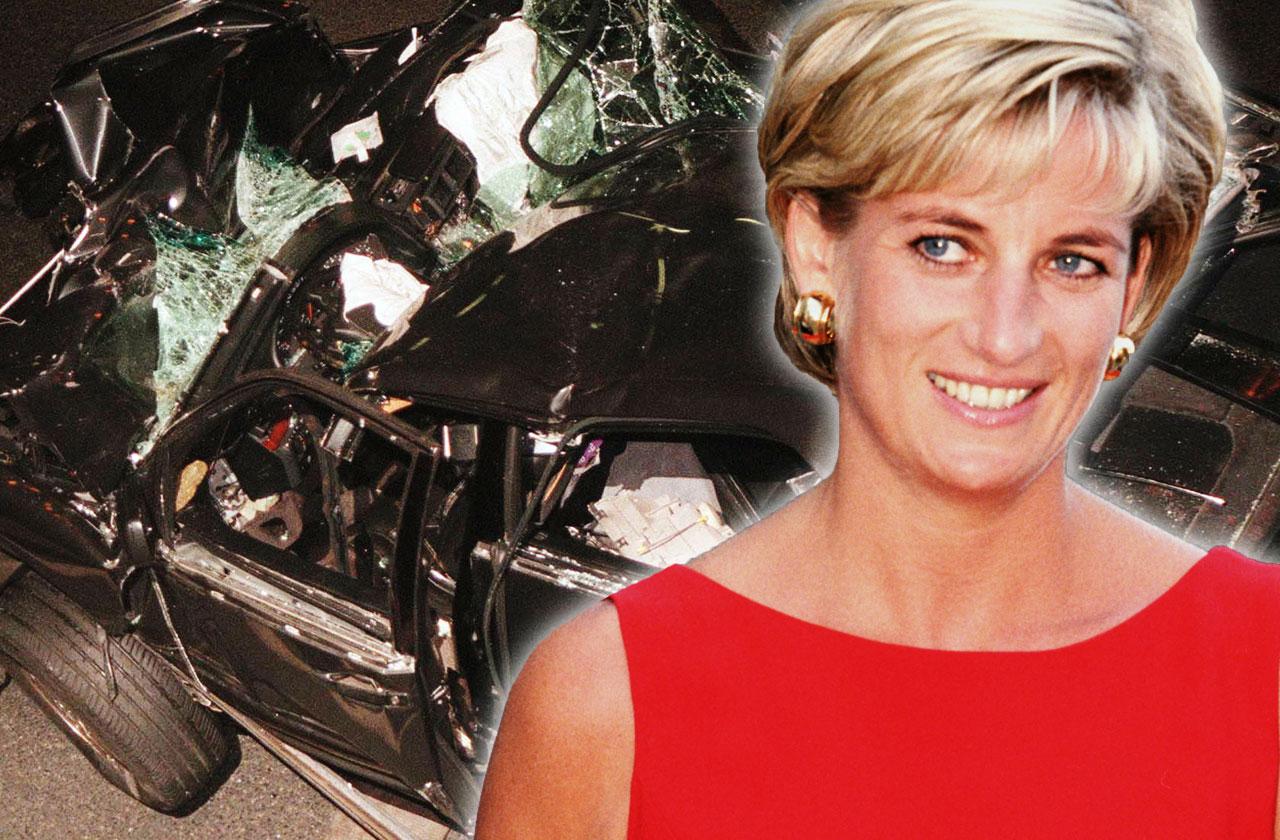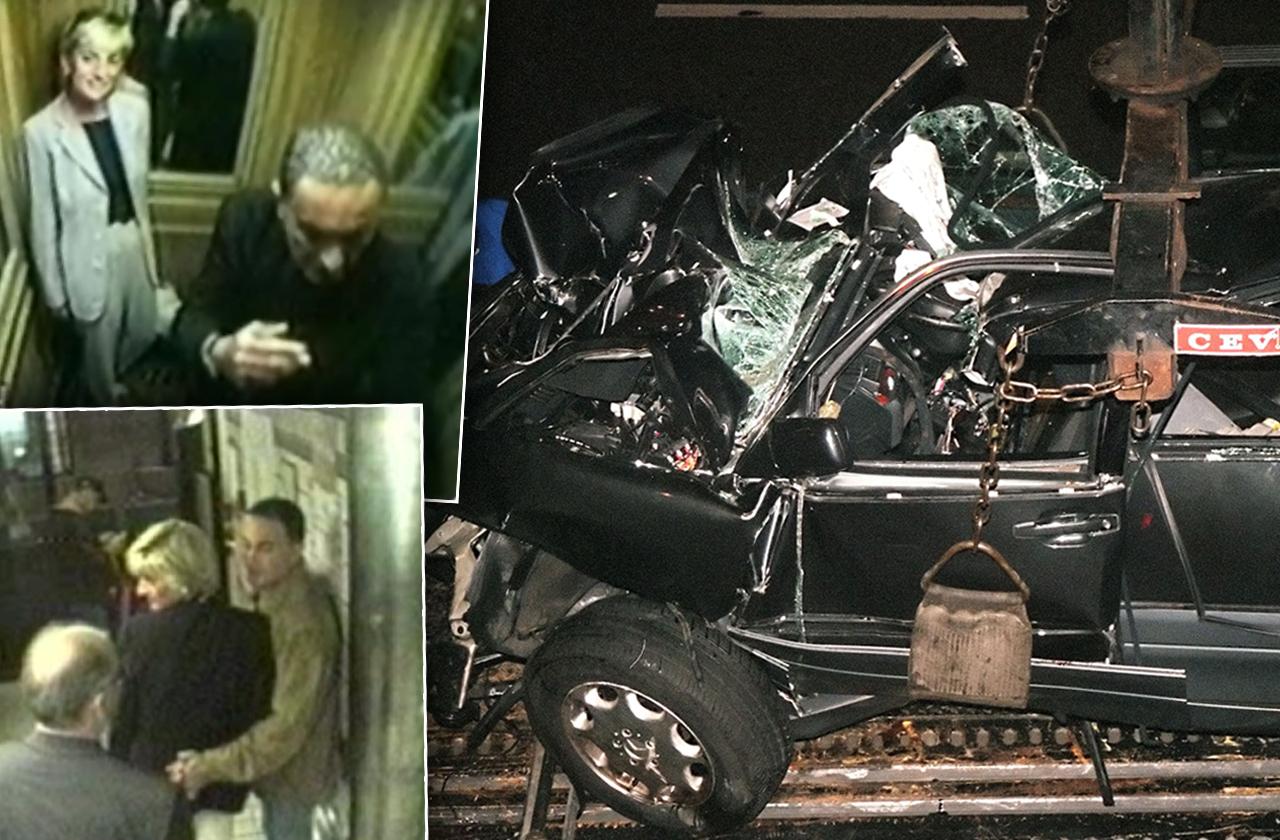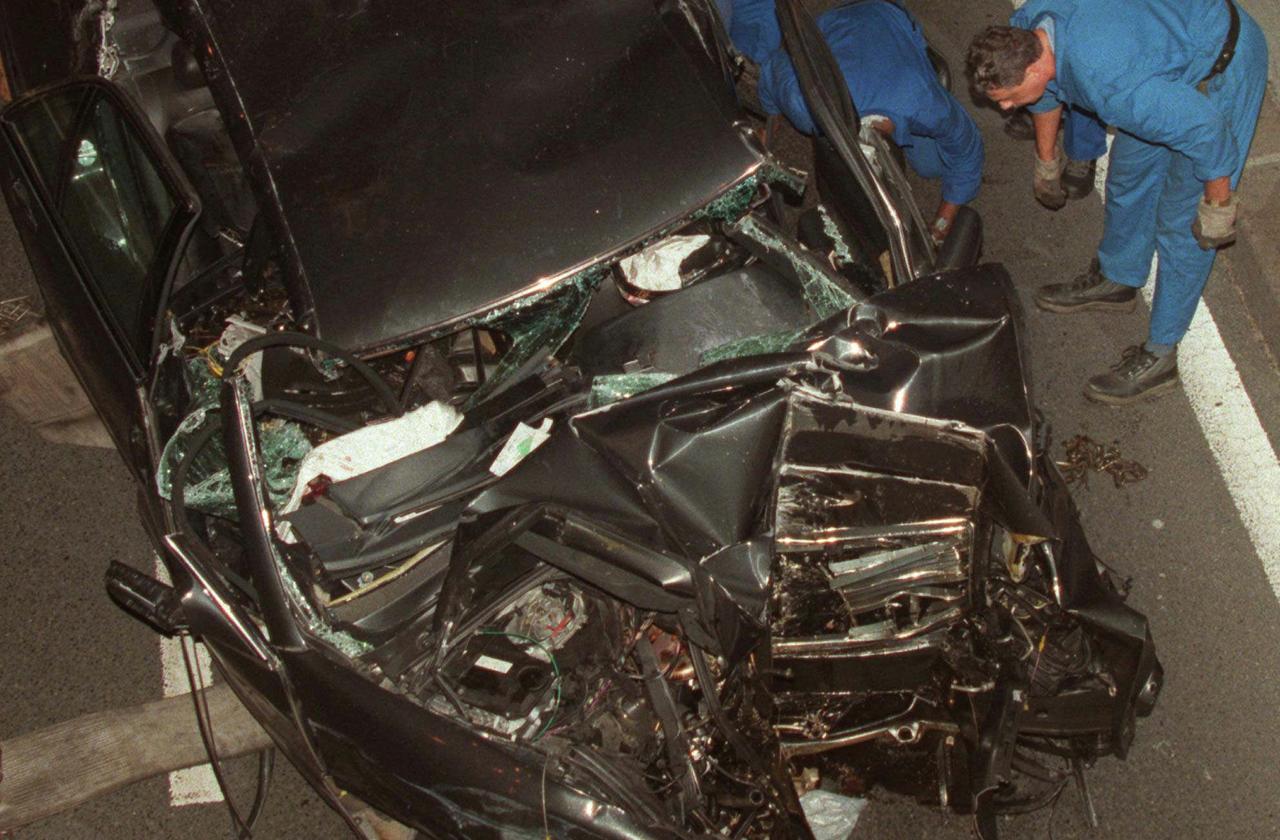Is the digital age eroding our collective sense of decency? The relentless circulation of "princess diana gore" a term that encapsulates the disturbing trend of sharing graphic images related to the late Princess Diana's death proves that certain boundaries of respect are consistently violated in the pursuit of shock value and attention.
"Princess Diana gore" is a deeply unsettling descriptor for the graphic and often fabricated images and videos that purport to depict the final moments and aftermath of Princess Diana's tragic passing. These materials, readily available across various online platforms, are exceptionally distressing, exploiting a moment of immense sorrow for sensationalistic purposes. It cannot be stressed enough: these images are often manipulated or entirely fabricated and should never be shared or viewed. Their existence and proliferation reflect a profound lack of empathy and a disturbing fascination with tragedy.
The term itself, "princess diana gore," is inherently derogatory, inflicting further pain upon those still mourning the loss of a global icon. Disrespect towards the deceased is a societal ill, and the use of such language only exacerbates the wound. It is imperative to uphold a standard of respect, refraining from any actions that could be perceived as insensitive or offensive, particularly concerning matters of death and bereavement. Princess Diana's life and legacy deserve far more than to be reduced to a source of morbid fascination.
- Donald Trumps Anthropological Impact A Closer Look
- Midori Francis Dating The Ultimate Guide To Her Love Life And Relationships
Encountering "princess diana gore" online demands immediate action. Resisting the urge to share is paramount; instead, reporting such content to the hosting website or platform is the responsible course. Furthermore, it's crucial to remember that emotional support is always available. Individuals grappling with distress, especially those experiencing thoughts of self-harm or suicide, should reach out to the National Suicide Prevention Lifeline at 988 or text HOME to 741741 to connect with the Crisis Text Line.
Grief is a deeply personal and often overwhelming experience. Resources abound to assist individuals navigating the complexities of loss, and seeking help is a sign of strength, not weakness. If you are struggling to cope with grief, reaching out to a friend, family member, or mental health professional can provide invaluable support during a difficult time. Remember, you are not alone.
Princess Diana Gore
Princess Diana gore, as mentioned, signifies the unsettling prevalence of graphic and often falsified depictions of Princess Diana's death circulating online. The emotional impact of viewing such materials is profound, underscoring the urgent need for online vigilance and responsible content consumption. These images are often sensationalized for the sole purpose of driving traffic or generating reactions, with little regard for the emotional toll they take on viewers.
- Lila Slip Your Ultimate Guide To Comfort And Style
- Virginia Escobosa Miranda Unveiling The Phenomenon Thats Taking The World By Storm
- Harmful: The potential for these images to inflict significant emotional and psychological harm cannot be overstated.
- Disrespectful: Sharing or viewing these images is an act of profound disrespect towards Princess Diana's memory and her loved ones.
- Illegal: Depending on the jurisdiction, the dissemination of such graphic content could constitute a violation of legal standards.
- Unethical: The unauthorized distribution of images depicting a deceased individual is a clear breach of ethical conduct.
- Avoid: Actively avoiding exposure to "princess diana gore" is a crucial step in protecting one's mental and emotional well-being.
- Report: Reporting instances of "princess diana gore" helps to combat the spread of harmful content online.
The motivations behind the creation and dissemination of these images are varied, ranging from a desire for attention to a twisted form of expressing grief. Some individuals may seek to shock or disturb others, while others, grappling with their own feelings of loss, may turn to these images as a misguided outlet for their pain. Regardless of the underlying reasons, the act of sharing and consuming such content is ultimately detrimental to all involved.
The path to healing from grief and loss is often challenging, and seeking professional guidance is a sign of strength. Whether through therapy, support groups, or other mental health resources, individuals can find solace and develop coping mechanisms to navigate their emotions effectively. The key is to acknowledge the pain and seek appropriate support.
Personal Details and Bio Data of Princess Diana
| Name | Diana, Princess of Wales |
|---|---|
| Birth Date | July 1, 1961 |
| Death Date | August 31, 1997 |
| Spouse | Prince Charles |
| Children | Prince William, Duke of Cambridge Prince Harry, Duke of Sussex |
| Title | Princess of Wales |
| Father | John Spencer, 8th Earl Spencer |
| Mother | Frances Shand Kydd |
| Siblings | Lady Sarah McCorquodale, Jane Fellowes, Baroness Fellowes, Charles Spencer, 9th Earl Spencer |
| Occupation | Philanthropist, Humanitarian, Public Figure |
| Known For | Her extensive charity work, advocacy for social causes, and her enduring popularity |
| Royal House | Windsor |
| Education | Riddlesworth Hall, West Heath Girls' School |
| Religion | Anglican |
Reference: The Royal Family Official Website
Harmful
The pervasive nature of "princess diana gore" underscores the potential for significant harm, particularly given the ease with which such images can be accessed and shared online. The images, often doctored or outright fabricated, prey on the public's fascination with tragedy, exploiting a vulnerable moment for sensationalistic gain.
- Emotional Distress: The visceral impact of viewing these images can trigger intense emotional distress, including feelings of shock, horror, and profound grief. Individuals who have personally experienced loss or trauma may be especially vulnerable to the distressing effects of this content.
- Psychological Trauma: Exposure to graphic depictions of death can have long-lasting psychological consequences, potentially leading to symptoms of trauma such as flashbacks, nightmares, and avoidance behaviors. In severe cases, viewing these images can contribute to the development of post-traumatic stress disorder (PTSD).
- Desensitization to Violence: The repeated exposure to graphic content can gradually desensitize individuals to violence, eroding empathy and potentially increasing the likelihood of viewing violence as acceptable or even desirable. This desensitization can have far-reaching societal implications, contributing to a culture of aggression and indifference.
- Erosion of Empathy: Constant exposure to tragic imagery can diminish one's capacity for empathy, fostering a sense of detachment from the suffering of others.
- Distorted Perception of Reality: Graphic images, particularly those that are fabricated or manipulated, can distort one's perception of reality, blurring the lines between truth and fiction.
The critical point to remember is that these images are not mere representations; they are often fabrications designed to shock and disturb. Resisting the urge to view or share them is a crucial step in protecting one's mental well-being and upholding a standard of respect for the deceased. If you encounter "princess diana gore," report it promptly to the relevant platform and seek support if you are experiencing distress.
Disrespectful
Beyond the potential for direct harm, the act of sharing images related to Princess Diana's death is fundamentally disrespectful, not only to her memory but also to the pain and suffering endured by her family, friends, and countless admirers. The event itself was a profound tragedy, and reducing it to a source of morbid entertainment demonstrates a disturbing lack of compassion and sensitivity.
The sharing of these images also disregards the dignity of the other victims involved in the car crash, further amplifying the disrespect and insensitivity. It's crucial to recognize the ripple effect of such actions, acknowledging the pain they inflict on those who were personally affected by the tragedy. Upholding a standard of decency requires conscious effort and a commitment to treating all individuals with respect, even in the digital realm.
In the face of such content, the responsible course of action is clear: refrain from sharing, report the material to the relevant platform, and prioritize empathy and compassion. By actively choosing to reject sensationalism and uphold a standard of respect, we can contribute to a more humane online environment.
Violation of Privacy: Sharing these images constitutes a severe violation of privacy, intruding upon a deeply personal and tragic moment in the lives of Princess Diana and her loved ones. Disregard for Human Dignity: These images often depict the deceased in a vulnerable state, stripping them of their dignity and reducing them to objects of morbid curiosity. Perpetuation of Trauma: Sharing these images perpetuates the trauma associated with Princess Diana's death, re-opening wounds for those who were deeply affected by the tragedy.Illegal
The legality surrounding the sharing of images related to Princess Diana's death is complex and varies depending on the jurisdiction. However, in many regions, the dissemination of such content could potentially violate laws related to obscenity, defamation, or the unauthorized distribution of private images.
- Obscenity: Content that is deemed offensive to public morality and lacks artistic, scientific, or literary value may be classified as obscene, and its distribution could be subject to legal penalties. Images of Princess Diana's death, particularly those that are graphic or sensationalized, could potentially fall under this category.
- Defamation: If the images are altered or manipulated in a way that damages Princess Diana's reputation or the reputation of her family, it could constitute defamation, which is a civil wrong that can lead to legal action.
- Distribution without consent: In some countries, laws exist to protect the privacy of deceased individuals and their families. Sharing images of a deceased person without the consent of their family could be a violation of these laws, particularly if the images are considered private or sensitive.
- Copyright Infringement: If the images are copyrighted and distributed without permission from the copyright holder, it could constitute copyright infringement, which is a violation of intellectual property law.
- Violation of GDPR: In the European Union, the General Data Protection Regulation (GDPR) regulates the processing of personal data, including images. Sharing images of Princess Diana's death could potentially violate GDPR if the images contain personal data and are processed without a legitimate purpose or consent.
It's crucial to be aware of the laws in your specific jurisdiction regarding the distribution of images of deceased persons. If you are uncertain about the legality of sharing such content, seeking legal advice is always the prudent course of action. Ignorance of the law is not a valid defense, and violating these regulations can have serious consequences.
Unethical
Regardless of legal considerations, the act of sharing images related to Princess Diana's death is fundamentally unethical, representing a profound violation of privacy, respect, and human dignity. It disregards the pain and suffering experienced by her family and friends, and it perpetuates a culture of sensationalism and morbid curiosity.
The ethical responsibility of individuals to uphold a standard of decency in their online interactions is paramount. This includes refraining from sharing content that is harmful, disrespectful, or exploitative. By actively choosing to reject such material, we can contribute to a more compassionate and ethical online environment.
Furthermore, it's crucial to recognize the potential impact of our actions on others. Sharing these images can trigger emotional distress, re-traumatize individuals who have experienced loss, and desensitize people to violence and suffering. Ethical behavior demands that we consider the consequences of our actions and strive to minimize harm.
Erosion of Trust: Sharing unethical content can erode trust in online platforms and communities, creating a sense of unease and insecurity. Promotion of a Culture of Disrespect: Unethical behavior online contributes to a culture of disrespect, where individuals are dehumanized and their pain is disregarded. Justification of Harmful Actions: Sharing unethical content can normalize and justify harmful actions, making it more likely that others will engage in similar behavior.Avoid
Given the potential for harm, disrespect, and legal repercussions, the most prudent course of action is to actively avoid exposure to "princess diana gore" altogether. This involves being mindful of the content you consume online, exercising caution when clicking on links, and actively reporting any instances of such material that you encounter.
Protecting your mental and emotional well-being requires proactive measures, and avoiding exposure to graphic or disturbing content is a critical step in maintaining a healthy online experience. By setting boundaries and being selective about the information you consume, you can safeguard yourself from the potential harm of "princess diana gore."
Furthermore, avoiding engagement with such content sends a powerful message that you do not condone the exploitation of tragedy for sensationalistic purposes. By actively choosing to reject "princess diana gore," you contribute to a culture of respect and empathy online.
Take Control of Your Online Experience: Choose to follow accounts and engage with content that promotes positivity, empathy, and respect. Utilize Content Filters: Many social media platforms and web browsers offer content filters that can help block or blur out graphic or disturbing images. Educate Others: Raise awareness among your friends, family, and online communities about the harmful effects of "princess diana gore" and encourage them to avoid engaging with such content.FAQs about "princess diana gore"
This section addresses frequently asked questions about "princess diana gore," providing clarity and guidance on this sensitive topic.
Question 1: What exactly constitutes "princess diana gore"?
Answer: "Princess diana gore" refers to graphic and disturbing images or videos that purport to depict the death of Princess Diana. These materials are often sensationalized, manipulated, or entirely fabricated.
Question 2: Why is sharing these images considered harmful?
Answer: Sharing images of Princess Diana's death is deeply disrespectful to her memory, her family, and the other victims of the tragedy. It can also cause emotional distress, psychological trauma, and desensitization to violence.
Question 3: Could sharing these images be illegal in my jurisdiction?
Answer: Yes, depending on your location, sharing images of Princess Diana's death could violate laws related to obscenity, defamation, or the unauthorized distribution of private images.
Question 4: Is there an ethical justification for sharing these images?
Answer: No, there is no ethical justification for sharing images of Princess Diana's death without the consent of her family. It is a violation of privacy and a disregard for human dignity.
Question 5: What steps should I take if I encounter these images online?
Answer: If you encounter images or videos of Princess Diana's death, do not share them. Report the material to the website or platform where you found it.
Question 6: Where can I find support if I'm struggling with grief or emotional distress related to this topic?
Answer: If you are struggling with grief or emotional distress, reach out to a trusted friend, family member, or mental health professional. Resources are available to help you cope with these challenging emotions. The National Suicide Prevention Lifeline at 988 or text HOME to 741741 to connect with the Crisis Text Line.
Summary:
- Sharing images of Princess Diana's death is harmful, disrespectful, and potentially illegal.
- It is unethical to share these images without the consent of Princess Diana's family.
- If you encounter these images, report them to the website or platform where you found them.
- If you are struggling with grief or emotional distress, seek support from a trusted source.
- Midori Francis Dating The Ultimate Guide To Her Love Life And Relationships
- Bogale Giddings The Rising Star Shaping The Entertainment Industry


